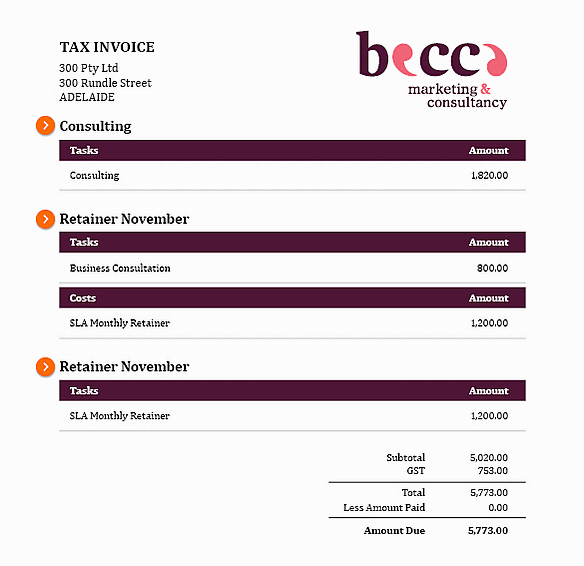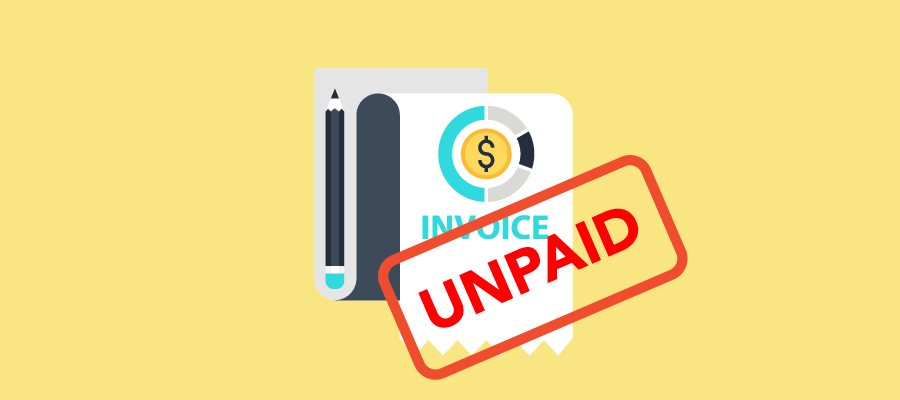So, your team has worked hard and completed an amazing project. You’ve sent (what you thought was) a comprehensive invoice to the client. Only to receive…complete radio silence…
Clients who are notorious for paying late can be a strain on your bottom line and force you to budget more than needed to make up for late returns.
Worse yet, approaching a client about late payments can be intimidating, and sometimes even a little awkward. But it doesn’t have to be. Get the money your team earned with these helpful tips.
1. Gut Check: Assess Whether Your Invoice is Truly Comprehensive

Thorough invoices include a description of the work completed, the amount that is owed, payment options and the due date of payment.
To determine if your invoice is as robust as it should be, ask yourself the following questions (…and be honest):
- Does your company use invoicing templates for consistent billing communications?
- Do you send each invoice on time every month?
- Does your company set appropriate payment due dates? (If not, establish this immediately.)
- Does your company charge penalties for late payments? If so, have you communicated this to your clients?
The answers to these questions may expose holes in your existing invoicing processes. If you found any flaws, this could be the reason for your client’s less-than-prompt-payments. If opportunities exist to strengthen your current invoicing processes, start there before assuming the fault lies completely with the client.
2. Determine When to Follow Up on Missed Payments
A common question many companies contemplate is when to start following up on late payments. From experience, I recommend addressing any instances of non-payment as soon as possible.
Some businesses give customers a one or two-week grace period, while others reach out a few days before the due date to help clients avoid missing payments in the first place. Decide which option works best for your business’ financials (depending on how urgently you’ll need payments processed to cover essential operating costs).
Communicate due dates and payment requirements as early as possible in the client relationship and keep a formal record of all conversations—either in a designated folder in your inbox or through a robust document manager.
3. Identify How to Follow Up on Overdue Invoices
First and foremost, try your best to remain amicable even when clients are tardy with their payments. This may be “easier said than done” if your client is a repeat offender, but try your best to keep your cool. Hostility could only breed more hostility.
When addressing late payments, schedule a face-to-face or phone conversation.
If you are unable to meet with your client in person or schedule a phone call, send a friendly—but firm—email that outlines the issue, potential penalty fees and options for payment. (You should also send this email if you had the conversation in person or over the phone and your client continues to stall on payment.)
Not sure how to craft a flawless, client-facing email that addresses issues associated with non-payment? We’ve got your back! Download helpful (and FREE) email templates in our ebook, 15 Emails to Keep Clients Happy.
4. Plan Ahead When Follow-Up Attempts Fail
If your friendly reminders aren’t resulting in payment from your noncompliant client, it’s time to roll up your sleeves.
Start with a follow-up email that acknowledges all previous communications you’ve sent to your client on the matter. Include dates of each point of contact, the context of each message and disclose any penalty fees that now apply.
If this doesn’t work, let your client know that they must pay within one week, or you will be forced to seek legal action to recoup what’s owed.
Regardless of the exact reason for missed payments, outstanding invoices present an opportunity to learn, grow and possibly change your billing process.
If late payments become routine, take the time to determine why each overdue invoice occurred in the first place, and make necessary changes to avoid repeat behaviors.
For additional tips on invoicing best practices, check out these other helpful resources:
- 15 Emails to Keep Clients Happy [Free Ebook]
- 3 Ways to Help Your Small Business Get Cash Flow Positive Fast
- Use WorkflowMax to get paid faster!
- Agencies: Three Tips to Transform Every Account Into Your “Dream Client”
- Agencies & Creatives: Here are 7 Tips That Will Make Invoicing Fun & Get You Paid Faster
How does your company handle late payments? Share your own tips in the comment section below.
Image Sources:
- Tax Credits under Creative Commons Attribution 2.0 Generic
- Hey Paul Studios under Creative Commons Attribution 2.0 Generic
- *sax under Creative Commons Attribution 2.0 Generic
- kristy under Creative Commons Attribution 2.0 Generic
- Dean Hochman under Creative Commons Attribution 2.0 Generic








